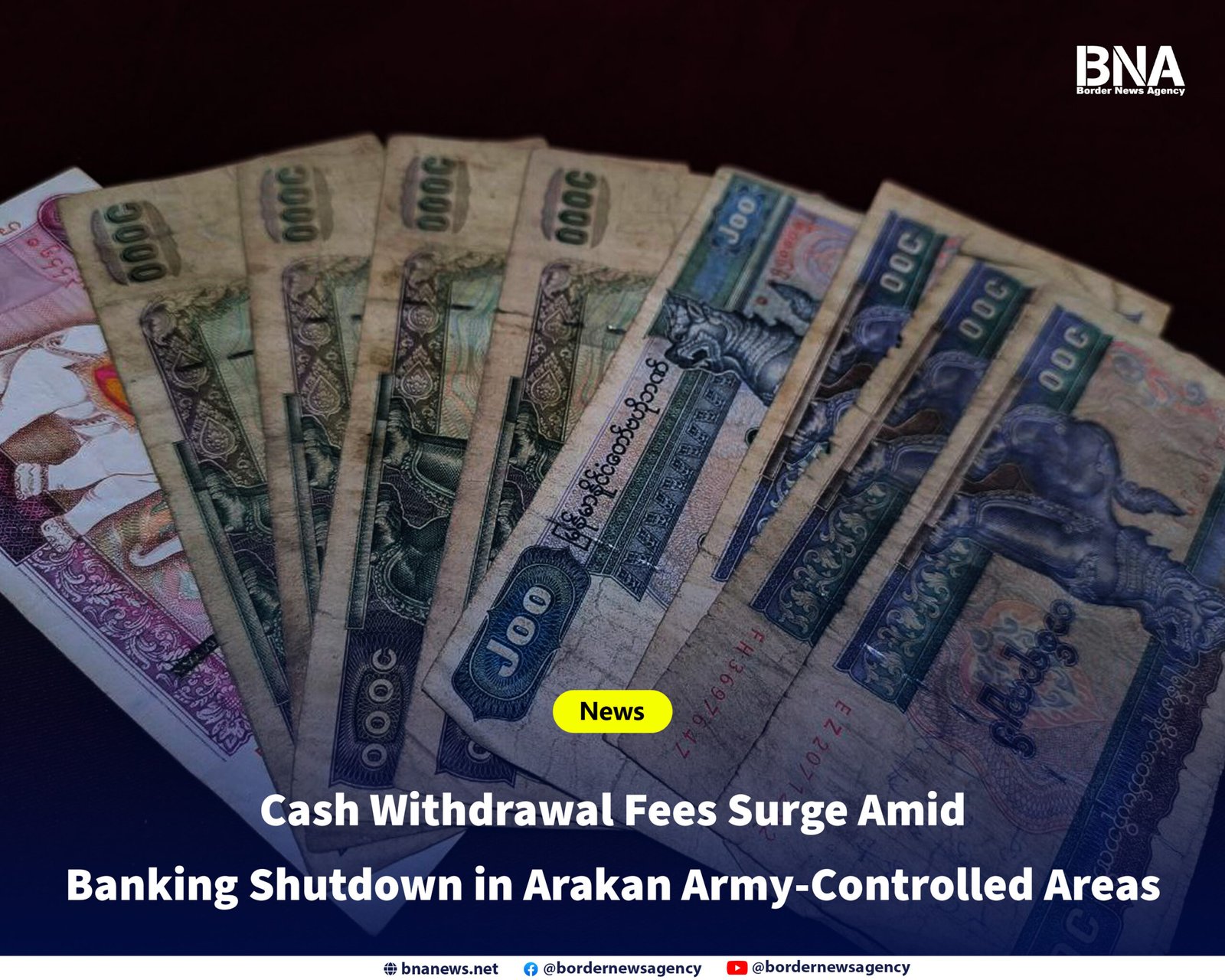Residents of Arakan have confirmed that cash withdrawal fees are rising in areas controlled by the Arakan Army (AA).
Following the AA’s offensives and capture of towns during the final stages of the Arakan war, nearly all banks under the junta’s control have shut down, forcing people to receive only a percentage of their cash deposits, according to locals.
As a result, cash withdrawal fees in AA-controlled territories have surged, with locals and money transfer agents saying fees have reached over 6,000 kyats per 100,000 kyats withdrawn.
These withdrawal fees have surged sharply over the past week. In previous months, people paid around 2,000 to 3,000 kyats per 100,000 kyats, but the rate has now jumped to between 5,000 and 6,000 kyats, according to Arakan residents.
“It’s not really due to a cash shortage it’s because of Thingyan and certain people holding large amounts of cash manipulating the market,” a money transfer agent from northern Rakhine told Border News Agency.
In townships like Kyauktaw, Mrauk-U, Minbra, and Myaybon, locals say they are paying around 5,000 kyats per 100,000 kyats for cash withdrawals. However, in places like Pauktaw, Rathedaung, and more remote rural areas, the fees have gone as high as 6,000 kyats or more, according to money withdrawal agents and residents.
That said, Arakan residents also mention that the exact percentage varies depending on the amount of money being withdrawn.
They suspect the price surge is linked to the upcoming Thingyan festival, with more people withdrawing cash, prompting money agents to hike up fees.
“If I transfer money through my husband, I can still withdraw with just a 3,000 kyats fee. But this month, the withdrawal fees suddenly went up,” a woman from Pauktaw Township told Border News Agency.
Locals say that since the Thingyan holiday period has arrived, more migrant workers abroad are sending money to their families in Arakan, leading to an increase in money transfers and withdrawals.
“Those who can afford it are deliberately stockpiling millions of kyats ahead of Thingyan, then raising the fees and making profits. But after Thingyan, the rates will likely drop again,” a money transfer agent told Border News Agency.
With banking services almost completely halted in Arakan, people there have had to rely solely on money transfer agents to access cash for over a year now.
During the final phase of the Arakan war, the Arakan Army (AA) seized control of 14 townships in the region, including Paletwa. Since then, all banking operations in these areas have come to a complete halt.
Only in Sittwe and Kyaukphru areas still under junta control are banks still operating.
However, residents say that even in those towns, access to cash is difficult because the junta has imposed strict restrictions on entry and exit.
As a result, people in junta-controlled territories have been forced to transport cash through risky underground channels, according to locals.
Due to the soaring cash withdrawal fees, organizations relying on donations from abroad to assist internally displaced persons (IDPs) in the region are also facing serious challenges, according to humanitarian workers.
Since the start of the final phase of the Arakan war, the junta has imposed blockades on all land and water routes in the region, restricting both the movement of goods and financial flows.
Locals say the Arakan People’s Government has a responsibility to monitor and regulate the rising withdrawal fees in AA-controlled areas. Some members of the People’s Government are reportedly already involved in addressing this issue.






